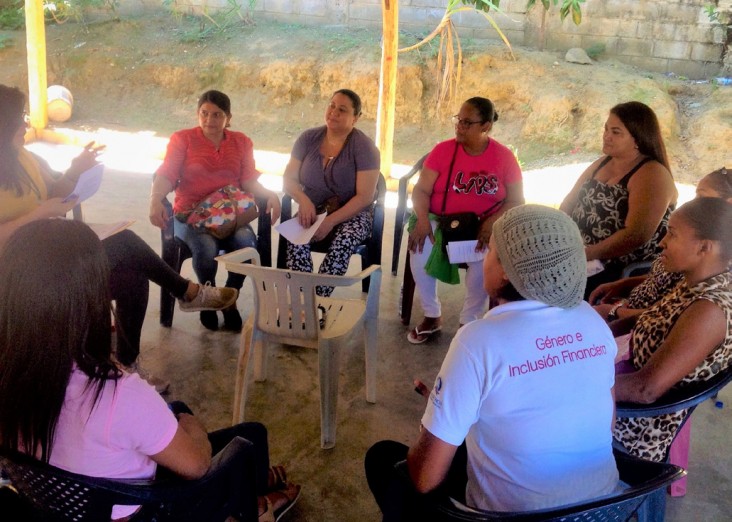- What We Do
- Agriculture and Food Security
- Democracy, Human Rights and Governance
- Economic Growth and Trade
- Education
- Environment and Global Climate Change
- Gender Equality and Women's Empowerment
- Global Health
- Humanitarian Assistance
- Transformation at USAID
- Water and Sanitation
- Working in Crises and Conflict
- U.S. Global Development Lab
Speeches Shim

In the Dominican Republic, low-income women disproportionately are denied access to credit because they lack credit history, formal earnings, and property rights. In partnership with a financial institution that offers mobile financial services to its customers, IPA and researchers from Northwestern University, the University of California at Berkeley, and the World Bank are using mobile data to test new credit-scoring models. In addition to new and richer individualized data, the models determine the best predictors of creditworthiness for men and women separately, making it possible for women to gain a credit score.
With the help of the WCC grant, as well as funding from CEGA’s Digital Credit Observatory (funded by the Bill & Melinda Gates Foundation), the UN Foundation, and the World Bank, IPA has been training and testing their new machine learning gender-differentiated credit scoring algorithm and gathering the necessary big data so that the algorithm can accurately assess the creditworthiness of low-income women without credit histories. Their preliminary results already show a substantial improvement over traditional credit scoring models that pool data for women and men. This translates into more women being classified as eligible to access credit than before. Additionally, insights from IPA’s focus groups show that this improved access to credit will be used by women for entrepreneurial activities and to meet health, food security, and educational needs in the household.
This innovation has enormous potential for scalability through its use of digital technology to improve women’s access to financing and provide the resources they need to fully participate in the global economy.

Comment
Make a general inquiry or suggest an improvement.